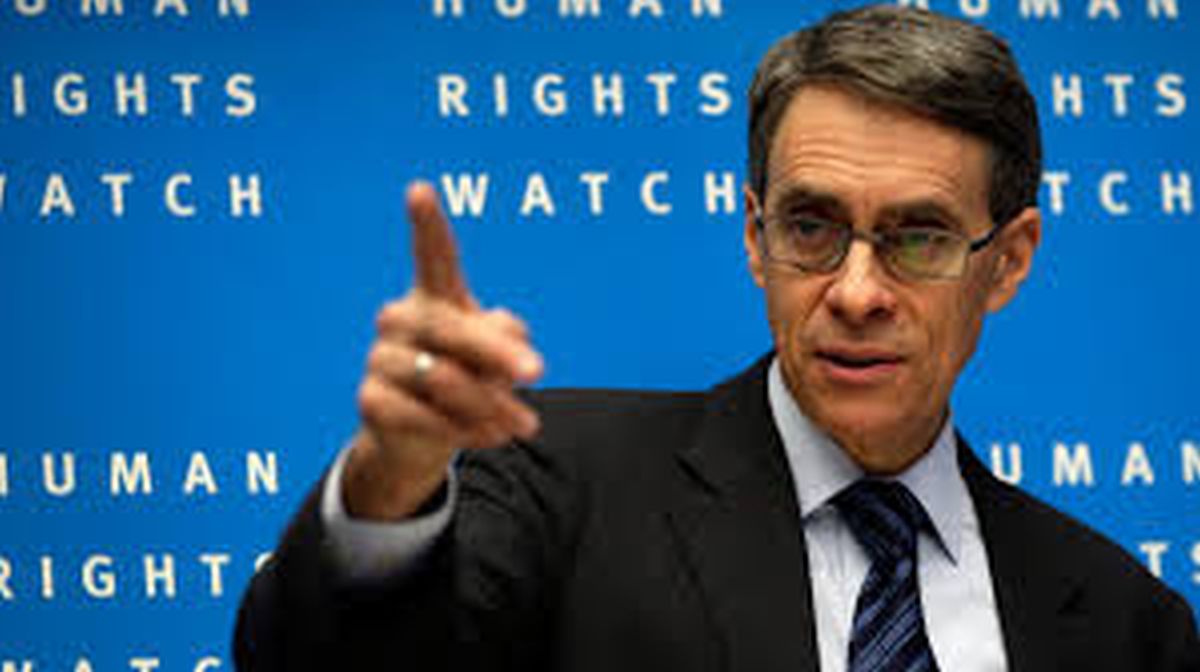 New York, September 5 – Human Rights Watch Director Ken Roth posted a Twitter message this morning that did not focus on alleged misdeeds by Israel, sources inside the organization report.
New York, September 5 – Human Rights Watch Director Ken Roth posted a Twitter message this morning that did not focus on alleged misdeeds by Israel, sources inside the organization report.
Roth typed and sent a tweet to his followers at 9:40 a.m. Eastern Time on Friday that referred them to massacres taking place in Iraq and Syria, uncharacteristically neglecting to mention human rights violations by Israel. “More massacres by ISIS. Rampant crimes against humanity while the world dithers,” he wrote, including a link to articles documenting the killings by the Islamist group.
Confusion followed among Roth’s followers, who are unaccustomed to receiving information via his tweets that does not attempt to damn Israel, usually with a sarcastic remark for good measure. Several dozen replied asking what events Roth was referring to, as the story to which he linked did not feature wrongdoing by the Jewish State or its organs. Two even suggested an error in the link, and helpfully provided an alternative link to unsubstantiated accusations by Palestinian leaders that Israel was confiscating puppies in the West Bank and shooting the creatures in the presence of crying Palestinian children. Those posts were retweeted more than 10,000 times.
Roth subsequently confirmed that the original link was indeed the one he intended, and that human rights violations sometimes occur outside areas controlled by Israel. Few followers retweeted that post.
“I simply didn’t find that a satisfactory explanation,” said Mira Bar-Hillel, an avid retweeter of Roth’s anti-Israel material. “Since when are human rights violations by anyone but Israel relevant?” She added that many Muslims believe the Islamic State of Iraq and Syria, which perpetrated the massacres, is an Israeli conspiracy, so that connection could at least have been mentioned.
Others objected for different reasons. “Drawing attention to crimes in places other than Israel threatens to expose those other places to international opprobrium,” warned President of Iran Hassan Rouhani. “Regimes that until now have brutally repressed their populations with barely any consequences might now be forced to respect the human rights of their citizens in some fashion, and the international community cannot allow that to happen. It’s a recipe for instability.”
Within half an hour the stream of anti-Israel tweets had resumed, leaving Roth’s followers wondering whether the anomaly was merely a one-time deviation or presaged a new direction for the activist. “I do wish I knew what to expect,” said William Schabas, a Canadian human rights activist. “The world’s attention can only handle so many situations at once, so we have to maintain focus on the places that demand the most urgent action. If we interpret that to mean an actual concern for human rights, that would mean more problems than we’re comfortable dealing with from our air-conditioned offices in New York and Geneva.”
“Ken Roth understands that, or I thought he did,” said Schabas. “Time will tell. If until that’s clarified a few million more people continue to have their rights trampled and their lives cut short, well, that’s what you get for the shortsighted decision to be oppressed by non-Jews.”




